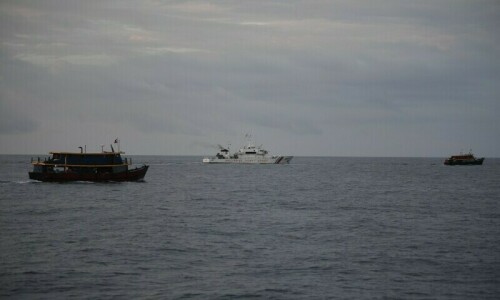KARACHI: Karachi has been named amongst the least safe of 60 major cities of the world by the Economist Intelligence Unit (EIU) — the research and analysis division of The Economist Group — in a report released earlier this week.
Karachi was rated at the last rank in the list of 60 cities, which shows Tokyo, Singapore and Osaka are the top three safest cities in the world.
“The 2017 Safe Cities Index retains the four categories of security from the 2015 version — digital, health, infrastructure and physical,” said the EIU in its executive summary of the report. The report specifically mentioned Karachi for being rated last.
“Although it [Karachi] performs poorly across all of the categories, it was dragged down by a very low level of personal security (60th),” it said. “This is a reflection of a number of factors, but the main reason is that among the cities in the index, it experiences by far the most frequent and most severe terrorist attacks.”
The fresh report came as a grim reminder of the study carried out and released by the EIU in August declaring the least liveable cities of the world. In that report Karachi maintained its 134th rank in the list of 140 cities, only managing to fare better than Port Moresby, Dhaka, Tripoli, Lagos and Damascus.
“Dhaka, Yangon and Karachi are at the bottom of the list,” said the fresh EIU report. “Of the 10 cities at the bottom of the overall index, three are in South-East Asia (Manila, Ho Chi Minh City and Jakarta), two are in South Asia (Dhaka and Karachi) and two are in the Middle East and Africa (Cairo and Tehran).”
Regarding rising security concerns, it says that with the spread of closed-circuit television (CCTVs) and webcams around cities, technologies such as artificial intelligence and data analytics can greatly enhance the capabilities of law enforcement agencies to combat urban crime and terrorism.
“In many respects it’s the very success of cities, in their role as global social and economic hubs, that makes them more vulnerable,” said the report. “As rural residents head for the city in developing countries and wealthy global capitals draw in international talent, vast demographic shifts are creating cities with previously unimagined population sizes. In 2016, there were 31 megacities — cities with more than 10m inhabitants. This is projected to rise to 41 by 2030.”
The report says that manmade risks are also growing. As recent tragic events in European cities such as London, Paris and Barcelona have demonstrated, high-profile, wealthy urban centres are becoming targets for terrorist activities, says the report.
Published in Dawn, October 14th, 2017













































